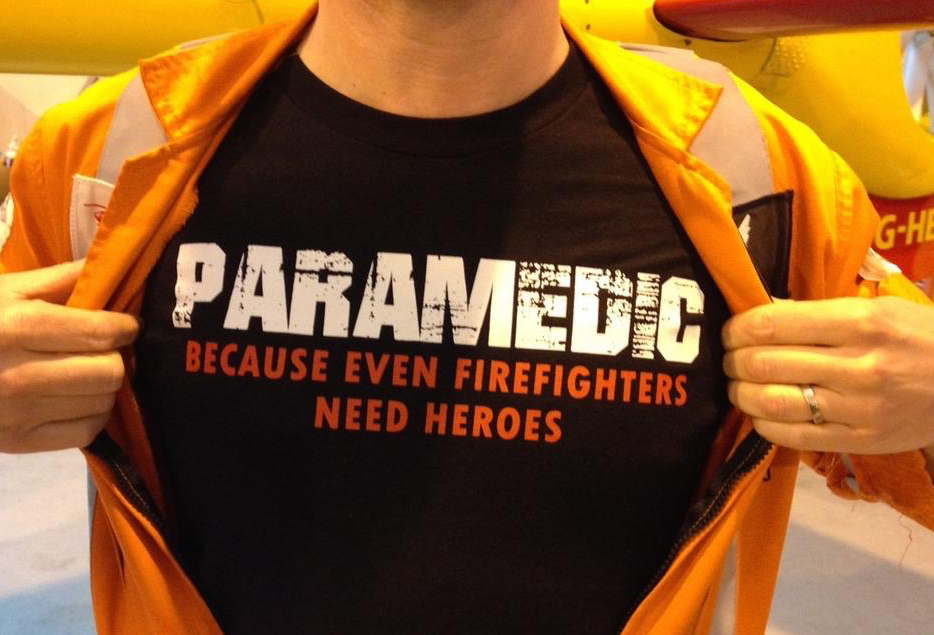Readers of the blog will know that I spent the second half of the year with MedSTAR, South Australia’s retrieval service and part of SA Ambulance Service (SAAS).
As a rural doctor I am usually a user of this service. It’s taken a few years after being invited to coordinate time off to arrange time out of practice on KI and visit MedSTAR, but it eventually worked out.
I have become interested in the use of FOAMed to help deliver “quality care, out there” and my gut feeling has been that there are many lessons from prehospital care that are relevant to rural practice – the rural environment is limited in both resources and personnel…and there is no immediate backup in a crisis. With the advent of FOAMed there really is no excuse for the isolated rural clinician to be the ‘weak link’ in critical care, at least in terms of knowledge. However, whilst critical illness does not respect geography, rural clinicians are limited by the occasional nature of such work, limited equipment, lack of standardisation and audit as well as deskilling.
So it was useful for me to use time at MedSTAR in order to see the heterogeneity in practice “out there” in rural SA, as well as to learn from paramedic colleagues as the experts in prehospital care. It was also an opportunity to see how well the skill set of the enthusiastic rural doctor can translate into the prehospital environment…
Lessons from Retrieval for Rural Clinicians
It wouldn’t be appropriate for me to dissect my experience of MedSTAR in full here. It was a useful experience, although it was not what I had expected based on previous experience since the inception of MedSTAR in 2007.
Relevant lessons for rural practice included :
- the value of regular case audit to drive improvement
- the need for standardisation of equipment and use of SOPs for key procedures
- potential for immersive scenario training to improve team work
- need for benchmarking with others, whether intra- or interstate
I hope that we can implement some of these lessons into rural hospitals run by Country Health SA. Bottomline, I hope to use the lessons learned to help encourage rural clinicians to embrace the difficulties faced by dealing with critical care infrequently, and seek to drive quality improvements. Whilst the retrieval service offers an excellent standard of care, I believe that opportunities exist for rural clinicians to value-add in the time awaiting the cavalry, rather than just call for help and wait…
I think there are many lessons from prehospital care relevant to rural – not just clinical governance, standardisation and sim. My passion is for airway management and I consider airway management in the rural ED to have parallels to prehospital – limited resources (equipment and staff), time-critical, with no immediate backup. As an ‘occasional’ intubator, I am interested in anything to allow me to be ‘expert enough‘…
Some videos from the forthcoming “critically ill airway” (CIA) course are included below – I am invited faculty at the invite of Chris Nickson, as a warm up to the smaccUS airway workshop. There WILL be soiled and monster airways, trust me..
https://vimeo.com/122820309
Also two videos from GSA-HEMS doctors Brian Burns and Cliff Reid on ‘critical thinking in rural & remote medicine‘ and “prehospital trauma education” respectively
Click link to see Brian Burns : Critical thinking in rural & remote video
Cliff Reid on ‘prehospital trauma education’ below :
I think such asynchronous web-based resources are highly valuable – both for public relations and recruitment of incoming clinicians to a service, as well as for sharing ideas between services and the rural workforce who generate many of the retrieval missions! Better to train across the board, than in silos.
Hopefully there will be more of these FOAMed resources from MedSTAR and others in the future…
Some services (GSA-HEMS is a good example) are already onto this – the PROTECT Australia project to educate rural clinicians is interesting, as is the sharing of lessons from their Clinical Governance Days. Some UK services share their SOPS – here are some from EMRS (Scotland) and other SOPS from UK HEMS.
All About that Base
MedSTAR covers both adult and paediatric populations in SA and interstate. Transport platforms include land ambulance, rotary wing, RFDS and Lear jet (the latter for interstate missions). Work involved primary missions (mostly from the roadside), modified primaries (usually from a small rural facility) and secondary transfers from larger rural and metro hospitals. The base is located at the Adelaide Airport with training hangar, sleeping quarters, admin offices and general areas. A purpose built new base will soon be co-located adjacent to both RFDS and helicopter hangars on the airfield, which is exciting.
With two adult and one paediatric team on 24/7, there was plenty of time to train between missions. Weekly audit of all cases and a monthly ‘clinical governance day’ were useful as part of ongoing clinical governance.
Thanks to all at MedSTAR (particularly the SOT/Rescue Paramedics) who added to my learning and made this a valuable experience.
